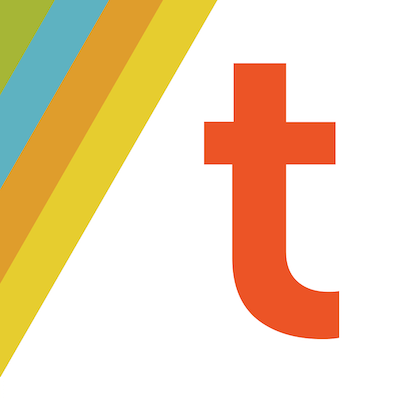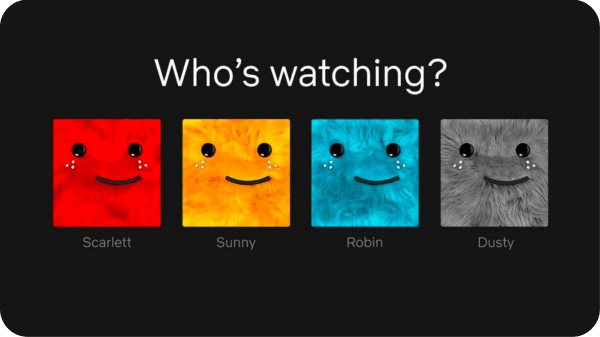
TOGETHER WITH
It's Friday and Pokémon’s new app is giving doom-scrollers a good reason to go to bed on time. After all, who wants to disappoint a Snorlax in need of “drowsy power”?
LO-FI, HIGH RETURNS
High-earning Roblox creators are raking in $23 million a year
Has Roblox become “one of the biggest virtual economies on Earth”? With creator payouts rising every year, the platform’s self-proclaimed title is hard to argue with. After all—as developers pointed out in a recent blog post—Roblox’s GDP is now “as large as that of some countries.” Its virtual inhabitants outstrip the population of several nations, too: according to Roblox, 66 million users log into its platform everyday.
A good chunk of those online players are shelling out real-life money.
That’s good news for creators of virtual clothing, accessories, and minigames, who bring in 29% of the Robux spent on their offerings. (Robux is Roblox‘s in-game currency, which can be cashed out into currencies like USD.)
Here’s how the numbers shake out:
In 2022, Roblox says it paid out $624 million to creators.
Last year’s top 10 creators earned an average of $23 million apiece, with Roblox claiming that “nearly every creator in our top 500 earned at least $140,000.”
The platform says its 1,000th top-earning creator of 2022 brought in $55,000.
This year’s payouts are already outpacing those numbers. In the first three months of 2023, Roblox says its creators brought in a whopping $182 million.
Those creator payouts could rise even further in the near future. Roblox says it’s working on other ways for creators to monetize, including through monthly subscriptions, the creation and sale of head and body customizations, and “the ability to purchase real-world goods within an experience.” The company’s ultimate goal: to create “a platform where anyone can be a buyer, creator, seller, curator, or IP owner.”
🔆 SPONSORED 🔆
Looking for a tight-knit creator community, expert support, and personalized business resources? Juice Club has it all:
As a creator, expert mentorship and community support can be life-changing. That’s why Creative Juice launched the first members-only creator community: Juice Club. Juice Club is a place for creators to learn from industry vets, access monthly education events and exclusive Discord channels, secure funding, and connect with other creators.
Earn $100 when you sign up for Juice banking and connect your AdSense 3 months in a row. Use code ADSENSE at sign-up.
Juice Club’s first expert-led creators sessions are coming soon. Here’s a sneak peek at the action (check out the website for more!):
Decode the YouTube Algorithm with YouTube consultant Paddy Galloway 🔎
Grow with a Multi-Platform Strategy with Creator & Forbes Journalist Jon Youshaei 📈
Land High-Paying Brand Partnerships with Creator and Podcast Host Kristen 🔥
Save Thousands in Taxes with Creative Juice CEO & Co-Founder, Sima Gandhi 💸
Office Hours with Ezra Cooperstein, Night President & Creative Juice Co-Founder 🙋♂️
Insure Your Creative with Christine McCarthy of Scale Underwriting and Shraddha Nair of Founder Shield 🔐
Juice Club is designed to help you save time and money—all while expanding your brand and community. Check out the website to learn more:
HEADLINES IN BRIEF 📰
In a recent survey, 53% queer POC respondents told The Trevor Project that they feel safe and understood on TikTok (as opposed to roughly 33% on YouTube). (Tubefilter)
YouTube has upped the fee for its YouTube Premium plan to a base price of $12.99 per month. (Tubefilter)
MrBeast’s snack brand, Feastables, has arrived in the U.K. (Tubefilter)
YouTube’s VP of the Americas Tara Walpert Levy delved into the truth behind ecommerce, Shorts views, and creator payouts on a new episode of Creator Upload. (Tubefilter)
DATA • CREATORS ON THE RISE 📈
This photographer finds the beauty in “everypeople”—so they can find the beauty in themselves
When David Suh began photographing his friends in high school, he came to a startling realization: most people don’t like the way they look on camera. At first, that epiphany was difficult for Suh to believe—because for him, the beauty of others wasn’t wrapped up in gender roles or beauty norms. It was just…obvious.
Capturing that beauty became Suh’s life’s mission.
He began dedicating his time to photographing “the everypeople”: “people who typically aren’t in the spotlight too much and therefore simply wants to see a beautiful photo of them, connect with someone that they identify as, and therefore feel seen and heard and feel empowerment through that.” By 2020, Suh had opened his own photography studio—an expensive undertaking that quickly hit a wall: the COVID-19 pandemic. With the world in quarantine, Suh says he could no longer serve his clients. So, he did the next best thing:
“I just stayed optimistic through it. I said, ‘You know what, let me share the joys of what I do on TikTok.’”
It was the right move. Videos like this one—in which Suh embodies his clients—demonstrated the confidence-building power of photography while giving viewers a humorous inside look at the biz. That style of content, Suh says, brought about a “huge, huge change” in his life. He’s now moved on from a single commercial space to three interconnected studios (jointly called DASU Studios), which operate as both a part-time tea house and an artist collective. His online following has grown, too: Suh now claims nearly 5 million followers on TikTok and over 400,000 subscribers on YouTube, where he’s continued to share insights about life and photography with his loyal fanbase.
BYE BYE BASIC
New subscribers can say goodbye to Netflix’s cheapest ad-free plan
Netflix’s anti-password-sharing campaign is going well (maybe even too well, if you’re not a fan of paying for your own account or watching ads). During its latest quarterly call, the streamer announced a significant rise in paid-sharing-related profits—and the retirement of its Basic plan.
By letting subscribers stream in HD on one device at a time for $9.99/month, Basic was Netflix’s most affordable ad-free option. Its demise in the U.K., Canada, and the U.S. reflects the profitability of Netflix’s recent password-sharing crackdown—and the success of its ad-supported plans.
According to The Verge, Netflix says the “entry prices” for its ad-supported plans already “provide great value to consumers given the breadth and quality of our catalog”—and per co-CEO Greg Peters, they’re “attracting a healthy share of signups,” too. The streamer’s password-sharing prohibition has driven its own wave of signups. Altogether, Netflix added nearly 6 million paying subscribers in Q2, bringing it to a total of 238 million. (By comparison, the company lost 970,000 subscribers in Q2 2022.)
Netflix attributed that growth to anti-password-sharing measures, including its decision to charge subscribers $8/month for each non-household-based viewer added to their account. According to the company, new signups prompted by paid sharing “are already exceeding cancellations.”
All that success begs the question: does Netflix still have an incentive to offer affordable ad-free options?
The streamer’s Q2 stats don’t bode well for viewers hoping to avoid both ads and a $15.45/month price tag. Although current Basic subscribers will continue to pay $9.99/month, new users are out of luck for now—unless they have a friend willing to bring them aboard for an added $8.
WATCH THIS 📺
Kai Cenat just won the NPC trend by scooping up $6,000 in one hour
The NPC streaming trend is heating up. By acting like video game characters and delivering rote replies in response to viewer gifts, creators have been raking in thousands of dollars per day—and now, one of Twitch’s top stars is joining in.
After streaming NPC-style for just one hour, Kai Cenat offered viewers a peek at his phone, which showed a gift revenue total of over $5,300.

Was this email forwarded to you? Subscribe here.
Today's newsletter is from: Emily Burton, Sam Gutelle, and Josh Cohen. Drew Baldwin helped edit, too. It's a team effort.







